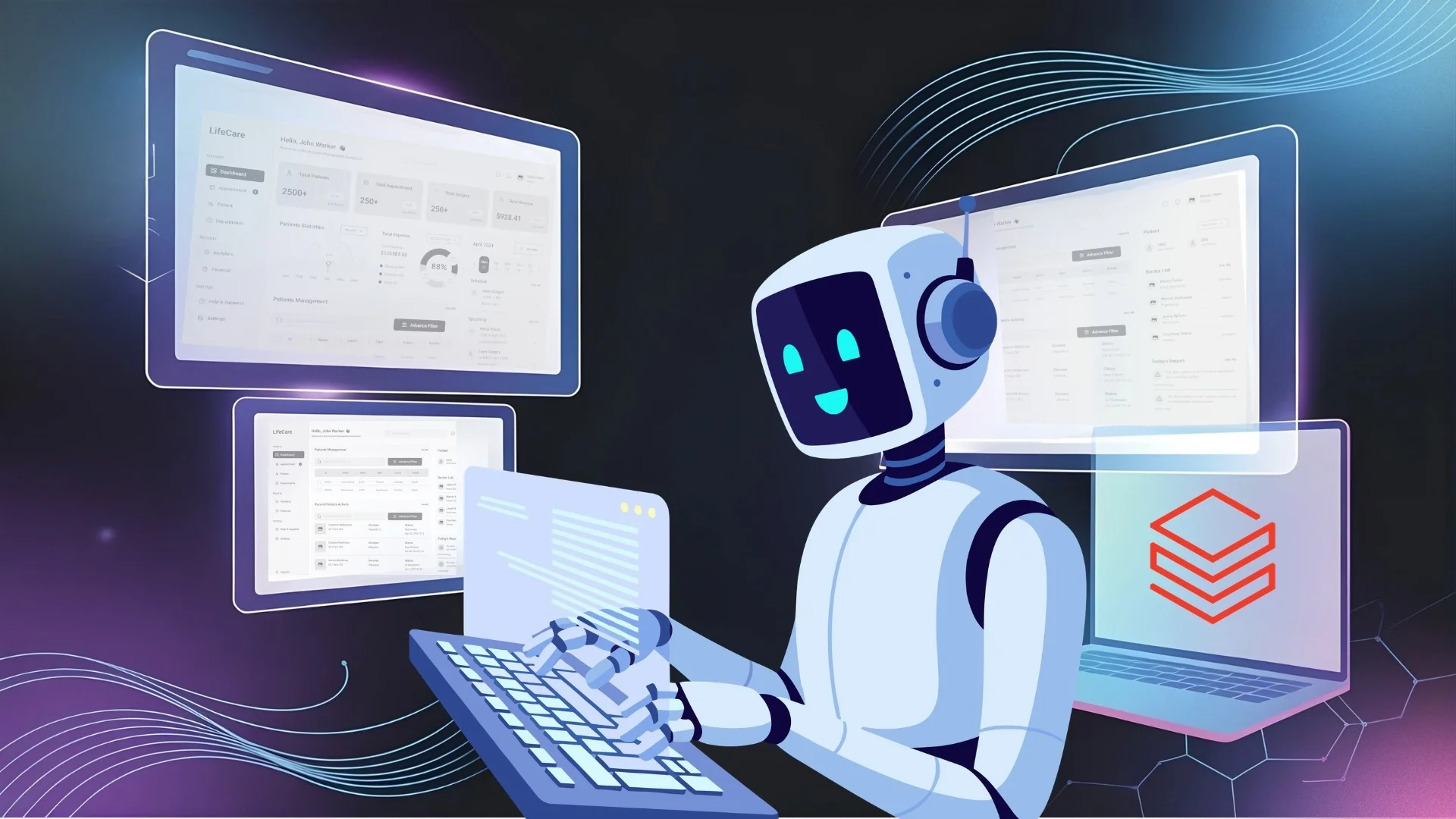Introduction
Digital transformation is constantly revolutionizing the world with all the tech advancements, Artificial Intelligence (AI) assumes a central role in shaping the landscape in 2025. This blog explores the practical contributions and role of AI, covering areas such as automation, data analytics, and customer experiences. We’ll examine how AI is not just adapting to the demands of the digital age but actively driving efficiencies and strategic advancements. Join us in exploring the future, where AI serves as a critical enabler for organizations navigating the complexities of today’s technological era
Table of Contents
Role of AI in Healthcare
Role of AI in healthcare is advancing the field by enhancing research, patient care, and diagnostics. The speed and precision of diagnosis are improved by machine learning and natural language processing, and proactive healthcare management is supported by predictive analytics models. The role of AI in healthcare helps with medication discovery, genomic research, and individualized treatment regimens by working with medical professionals. When developing AI for healthcare, ethical issues, data protection, and regulatory compliance are crucial. Maintaining these standards is crucial to fostering confidence and achieving the full revolutionary potential of artificial intelligence in the healthcare industry.
DeepMind developed an AI program that created a 3D mapping of all 200 million proteins known to science. The CEO predicts it would have taken humans a billion years to complete this project. pic.twitter.com/DbFysLBQ7s
— 60 Minutes (@60Minutes) April 16, 2023
In 2022, the FDA approved 91 AI devices, including the EchoGo Heart Failure tool, capable of identifying heart failure from a lone echocardiogram. In 2020, Google DeepMind employed AI to forecast a protein’s 3D structure, addressing a pivotal biological challenge.
AI in Cybersecurity
In 2020, the market value of AI in cybersecurity surpassed ten billion U.S. dollars and is anticipated to surge to 46.3 billion U.S. dollars by 2027. This exponential rise emphasizes how important the role of AI is to strengthening cybersecurity defenses. A vital part of this explosion is machine learning algorithms, which enable predictive threat detection and swiftly spot anomalies in real time. Automated responses support defense systems and increase overall security effectiveness. AI integration ensures a proactive defensive approach by detecting known threats and adapting to developing ones. To promote ethical AI practices, it is critical to coordinate efforts with ethical considerations, placing a strong emphasis on responsibility, transparency, and justice.

Source: Statista, Displaying the Market value of AI in Cybersecurity
AI in Analysis
The Role of AI in Data Analysis has advanced significantly by 2025. These days, machine learning algorithms offer nuanced interpretations of data, improving prediction accuracy and decision-making precision. By streamlining intricate analytical procedures, automation increases overall productivity and allows Data professionals to concentrate on strategic work. It is changing data exploration techniques and promoting innovation across a range of industries. An increasing focus on data privacy is resulting in a dedication to ethical AI methods. Reliable findings are ensured by constant algorithmic improvement and a transparent methodology as AI is further integrated into the analytical area.
AI in Designing
Generative AI has significantly impacted graphic design by introducing a new level of creativity and efficiency. Through advanced algorithms, designers can now generate diverse and dynamic visuals, streamlining the process of creating compelling graphics. This technology accelerates ideation and improves the iterative design phase, allowing for quick exploration of design possibilities. Whether it’s crafting unique patterns or experimenting with layouts, generative AI functions as a collaborative tool that complements human creativity. Adopting this technology facilitates a more flexible and innovative design process, offering designers the ability to push beyond traditional boundaries. The role of AI in graphic design serves as a practical and valuable tool, enhancing the overall impact and productivity of design professionals. Recently introduced generative AI-powered tool Microsoft Designer, producing stunning visuals with a simple prompt.
AI in Automation (RPA):
In the field of automation, Role of AI, specifically Robotic Process Automation (RPA), plays a crucial role. RPA, coupled with AI capabilities, streamlines complex workflows, handling repetitive tasks efficiently. Intelligent algorithms enable the smooth execution of routine processes, freeing up professionals for more strategic endeavors. AI’s contribution to decision-making enhances adaptability, ensuring processes can adjust dynamically to changing requirements. As automation evolves, optimizing the collaboration between technology and human expertise, driving industries towards enhanced productivity and innovation.
Watch the video to get to know the role of AI and what are expected advancements by 2025 – 2025
AI in Customer Experience:
Role of AI in enhancing customer experience these days revolutionizing the field with inbuilt chatbots, AI serves as a key player in creating personalized, seamless interactions. Natural Language Processing (NLP) empowers virtual assistants and chatbots to comprehend and respond to customer queries intelligently. Predictive analytics, powered by AI, anticipates customer needs, fostering proactive engagement. Customized recommendations, facilitated by advanced algorithms, contribute to heightened customer satisfaction and loyalty. Role of AI is developing customer-centric solutions, aligning technology with empathy to redefine benchmarks for exceptional customer experiences in the digital age.
AI in Cloud Computing
The integration of AI and ML in cloud computing has significantly improved various aspects of life, including the development of digital assistants like Google Home, Siri, and Amazon’s Alexa. The rise of mobile device usage has led to a decrease in dependence on conventional computing systems, with AI-powered cloud platforms optimizing data storage, processing large volumes of data in real-time, and offering intelligent recommendations based on patterns and trends.
Many companies have embraced cloud-based solutions using Software as a Service (SaaS) and Platform as a Service (PaaS). Cloud Machine Learning (CML) platforms, such as AWS ML, Azure ML, and TensorFlow (Google Cloud ML), are instrumental in facilitating the development of machine learning models. AI cloud services are becoming increasingly popular among businesses, leveraging AI platforms like IBM Watson, Google Cloud Vision, Microsoft Cognitive Services, or Natural Language APIs to provide advanced AI capabilities through API calls. AI and ML are revolutionizing cloud computing in several ways, including data management, data security, cloud automation, streamlining cloud workflows, resource allocation, and cost optimization
Conclusion
After having a clear understanding of the profound influence and role of AI, it’s clear that AI is set to reshape the tech age. Embracing AI may be one’s own choice, but it’s a strategic imperative that will redefine how we navigate and excel. Imagine a future where workflows are optimized, decision-making is data-driven, and innovation is seamless. Sparity’s cutting-edge AI solutions are tailored to elevate efficiency, automate tasks, and drive unparalleled value. Partner with Sparity for a future where your business thrives on the possibilities of AI-driven digital transformation, making efficiency not just a goal but a reality.















